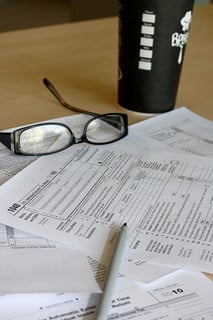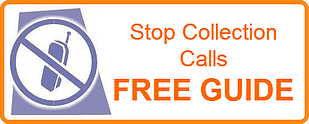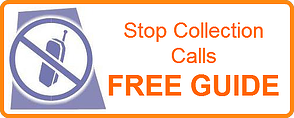Good news! YES, There is a way to stop a wage garnishment WITHOUT bankruptcy!
If you are facing financial difficulty and get behind on your credit card payments, the creditor may choose to seek legal measures to recover the debt.
BUT, IT IS VERY IMPORTANT THAT YOU KNOW:
- A creditor cannot just decide to garnish your wages
- A creditor cannot just decide to levy your bank account
- A creditor cannot take you possession!
A creditor will usually follow the following steps to recover delinquent debts:
- Calls, calls, calls! Click here to learn how to STOP THE CALLS
- Nasty letters with threats of ruining your credit, possible legal action, etc.
- And then, after about 4-6 months, if they are unsuccessful, they may decide to file a complaint for the debt you owe.
After they file a complaint in your local county courthouse, you will receive a SUMMONS.
DON'T PANIC!!!
The summons will state that you have 20 or 30 days to respond with an "ANSWER".
An "answer" is what you would present if you feel that you do not owe the debt.
Since you owe the debt (even though the interest rates and fees are ridiculous), the fact is that when you signed up for the card, you agreed to all of the fees. (Remember all that fine print you skipped over?)
Anyway, so after about a month or so after receiving the SUMMONS, if an agreement cannot be reached with the creditor, they may apply for a DEFAULT JUDGMENT.
Once the Default Judgment is awarded to the creditor (plaintiff), then they can apply for a WRIT OF GARNISHMENT.
Each state varies as to how much can be garnished and what income is exempt from garnishment.
In most states, the garnishment is 25% of your net (after taxes) take home pay. For most people who are already in a financial hardship, this would be terrible!
If you receive income from:
- Social Security benefits
- Supplemental Security Income (SSI)
- Welfare or public assistance
- Spousal support or child support
- Public or private pensions
- Veterans benefits and/or loans
- Disability proceeds of life insurance policies
- Cash surrender value of life insurance policies
- and many others
Click here to get a list of exempt wages in Oregon.
OK, so if you don't meet the exemption requirement and you get a garnishment, here's what you have to do:
Contact the creditor or the creditor's attorney.
In most cases, once you have provided proof (BASIC BUDGET WORKSHEET), you should be able to arrange a STIPULATED AGREEMENT.
In a STIPULATED AGREEMENT, the attorney agrees to STOP THE GARNISHMENT and NOT PROCEED with further legal action as long as you send in the agreed amount each month.
This amount should be less that what the garnishment would have been.
IT IS VERY IMPORTANT THAT YOU NEVER MISS AN AGREED PAYMENT!
If you do, they will most likely VOID THE AGREEMENT and start the wage garnishment again and will not be willing to re-negotiate another Stipulated Agreement.
SOUND CONFUSING? We may be able to help. Simply CLICK THE LINK BELOW or give us a call at 1-877-492-4109.




 If you have had a debt "forgiven", and receive a 1099-C, how do you avoid paying taxes?
If you have had a debt "forgiven", and receive a 1099-C, how do you avoid paying taxes?
 Can a Debt Collector Garnish Retirement Income?
Can a Debt Collector Garnish Retirement Income?


 If you have old credit card debt, you may be wondering how long a collector has to collect.
If you have old credit card debt, you may be wondering how long a collector has to collect.

 Can Social Security be garnished?
Can Social Security be garnished?


